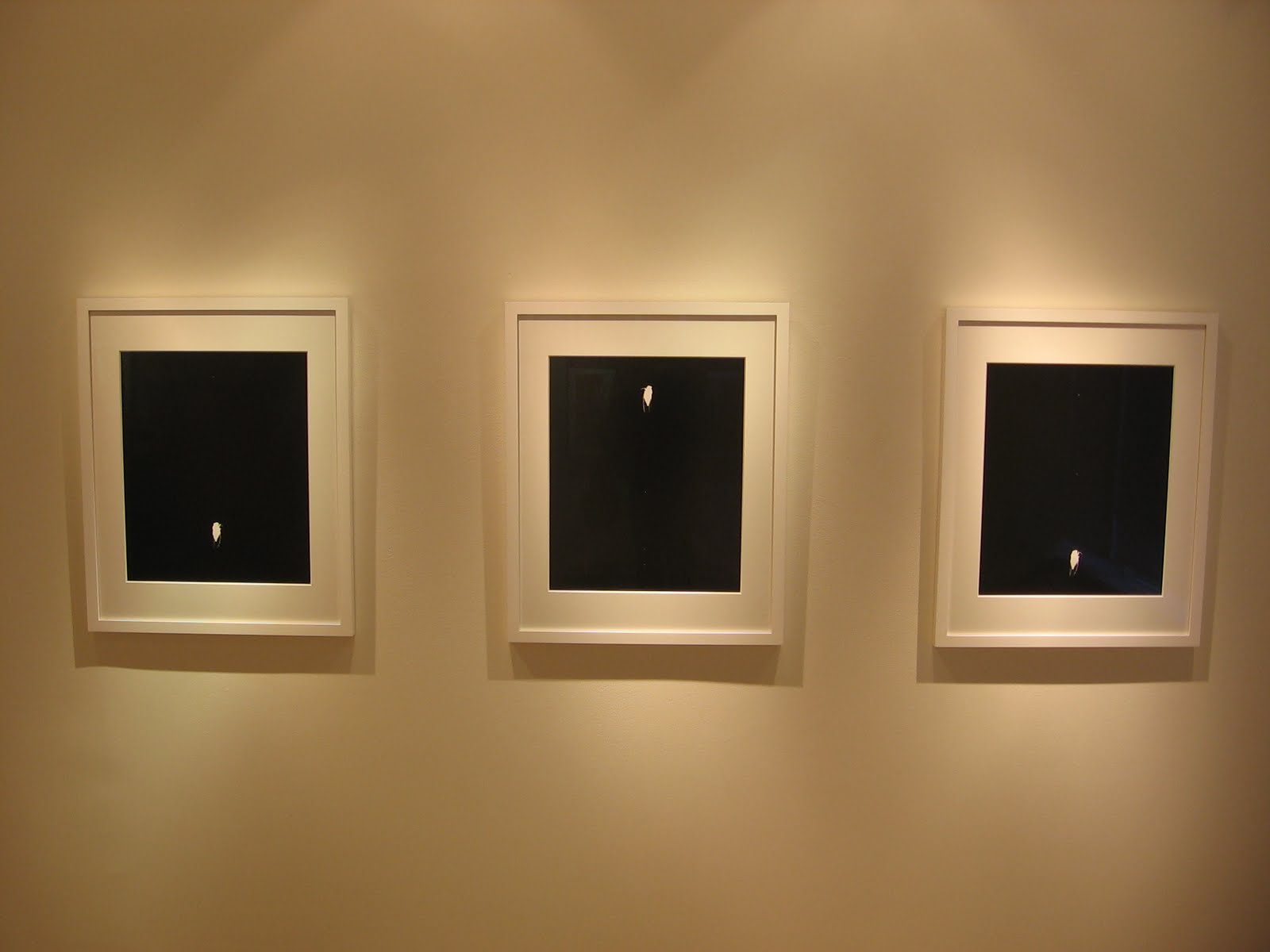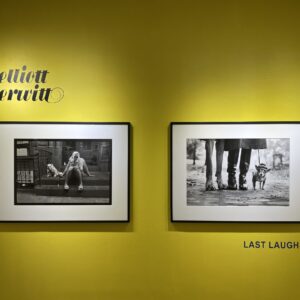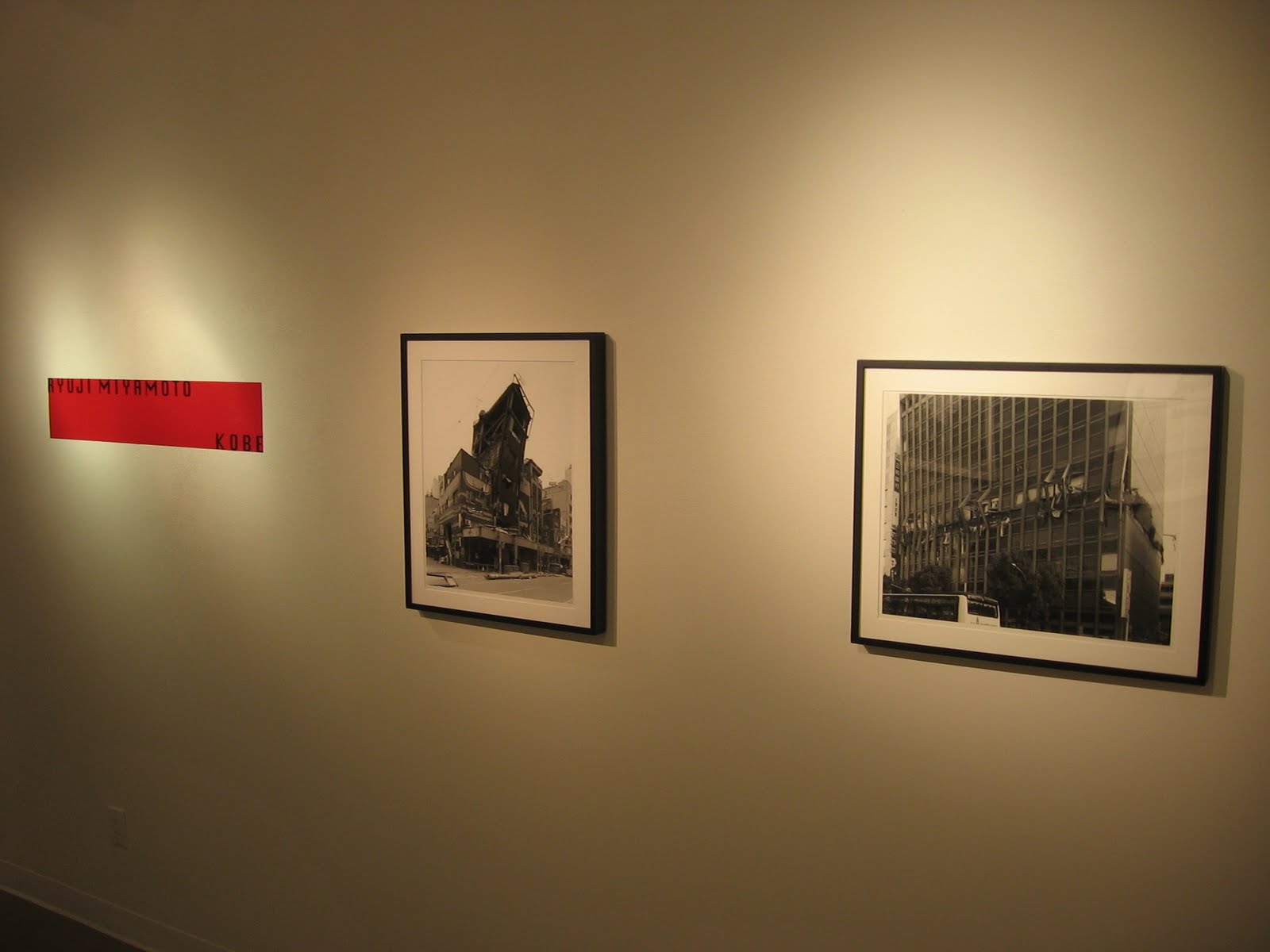 JTF (just the facts): A total of 23 works (18 black and white images and 5 photograms), framed in black and white respectively and matted, and hung against cream and grey walls in the main gallery spaces. The gelatin silver prints are 24×20 or reverse, in editions of 15; all of the images were taken in 1995. The photograms are either 32×26 or 15×12, and each is unique; these prints were made in 2008 and 2009. A revised monograph of the Kobe images was published in 2006 by Bearlin (here); signed copies are available from the gallery for $75. (Installation shots at right.)
JTF (just the facts): A total of 23 works (18 black and white images and 5 photograms), framed in black and white respectively and matted, and hung against cream and grey walls in the main gallery spaces. The gelatin silver prints are 24×20 or reverse, in editions of 15; all of the images were taken in 1995. The photograms are either 32×26 or 15×12, and each is unique; these prints were made in 2008 and 2009. A revised monograph of the Kobe images was published in 2006 by Bearlin (here); signed copies are available from the gallery for $75. (Installation shots at right.)
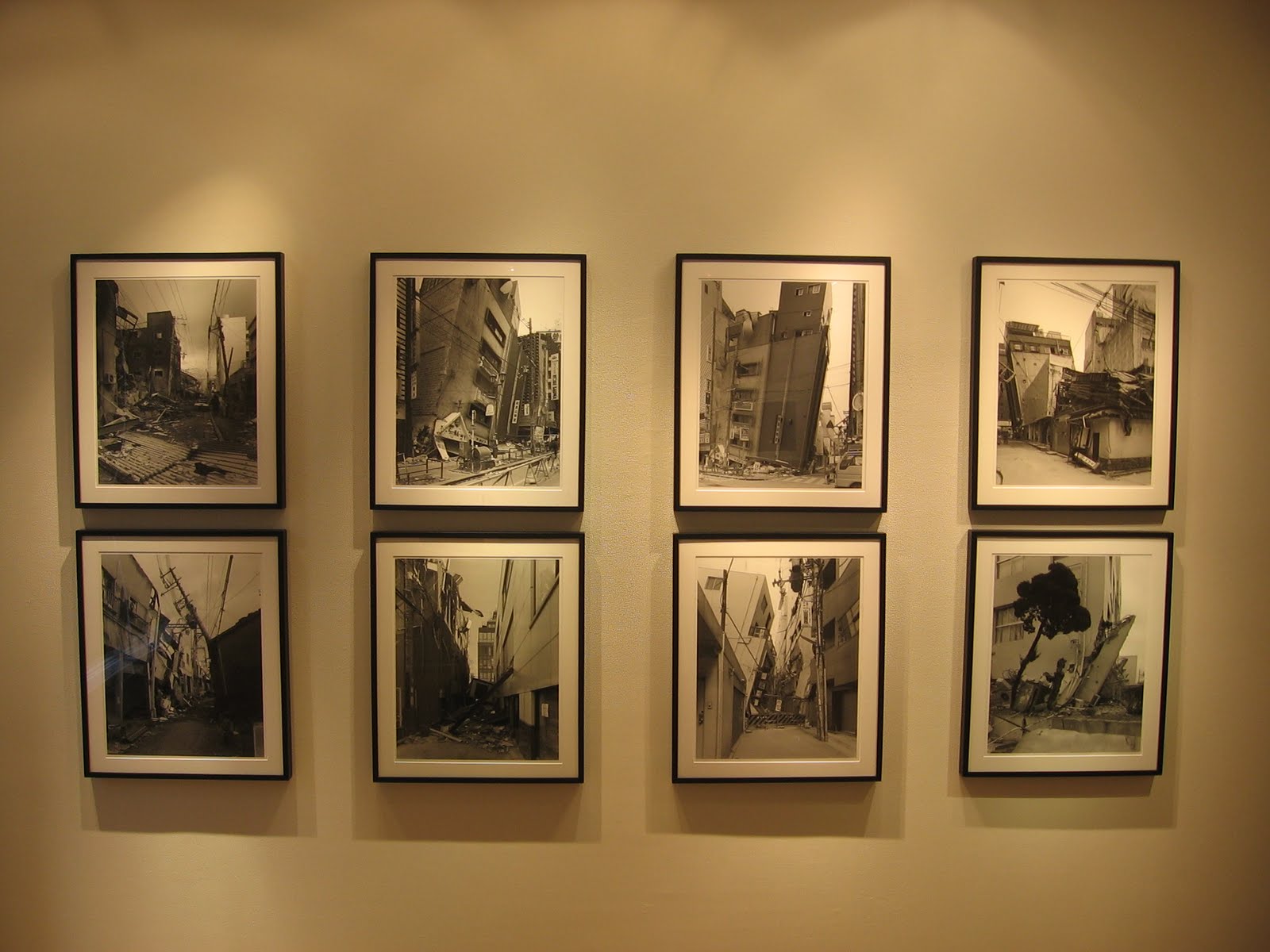 For the most part, these pictures are entirely absent of people, enveloping them in an uninhabited silence, a quiet unreality where the walls are falling in all around us. In some images, the damage seems to have been controlled, where buildings stand mostly intact, except for the strange dissonance of a collapsed floor or a string of broken windows and snapped girders. In others, the destruction is more widespread; entire structures lean perilously, or have been reduced to dense piles of broken concrete and tangled wires. Some even look like Postmodern architecture, albeit with an unsettling disaster undertone. In nearly every image, straight lines have become angles and diagonals: buildings are toppling into alleyways, telephone poles are bent, entire structures teeter on the verge of giving in. The geometries overlap in cacophonous layers, with architectural patterns and motifs repeated and reprised in unexpected ways. What is perhaps most shocking is how beautiful these pictures are, especially when the lines and forms tangle together in a big, chaotic mess.
For the most part, these pictures are entirely absent of people, enveloping them in an uninhabited silence, a quiet unreality where the walls are falling in all around us. In some images, the damage seems to have been controlled, where buildings stand mostly intact, except for the strange dissonance of a collapsed floor or a string of broken windows and snapped girders. In others, the destruction is more widespread; entire structures lean perilously, or have been reduced to dense piles of broken concrete and tangled wires. Some even look like Postmodern architecture, albeit with an unsettling disaster undertone. In nearly every image, straight lines have become angles and diagonals: buildings are toppling into alleyways, telephone poles are bent, entire structures teeter on the verge of giving in. The geometries overlap in cacophonous layers, with architectural patterns and motifs repeated and reprised in unexpected ways. What is perhaps most shocking is how beautiful these pictures are, especially when the lines and forms tangle together in a big, chaotic mess. 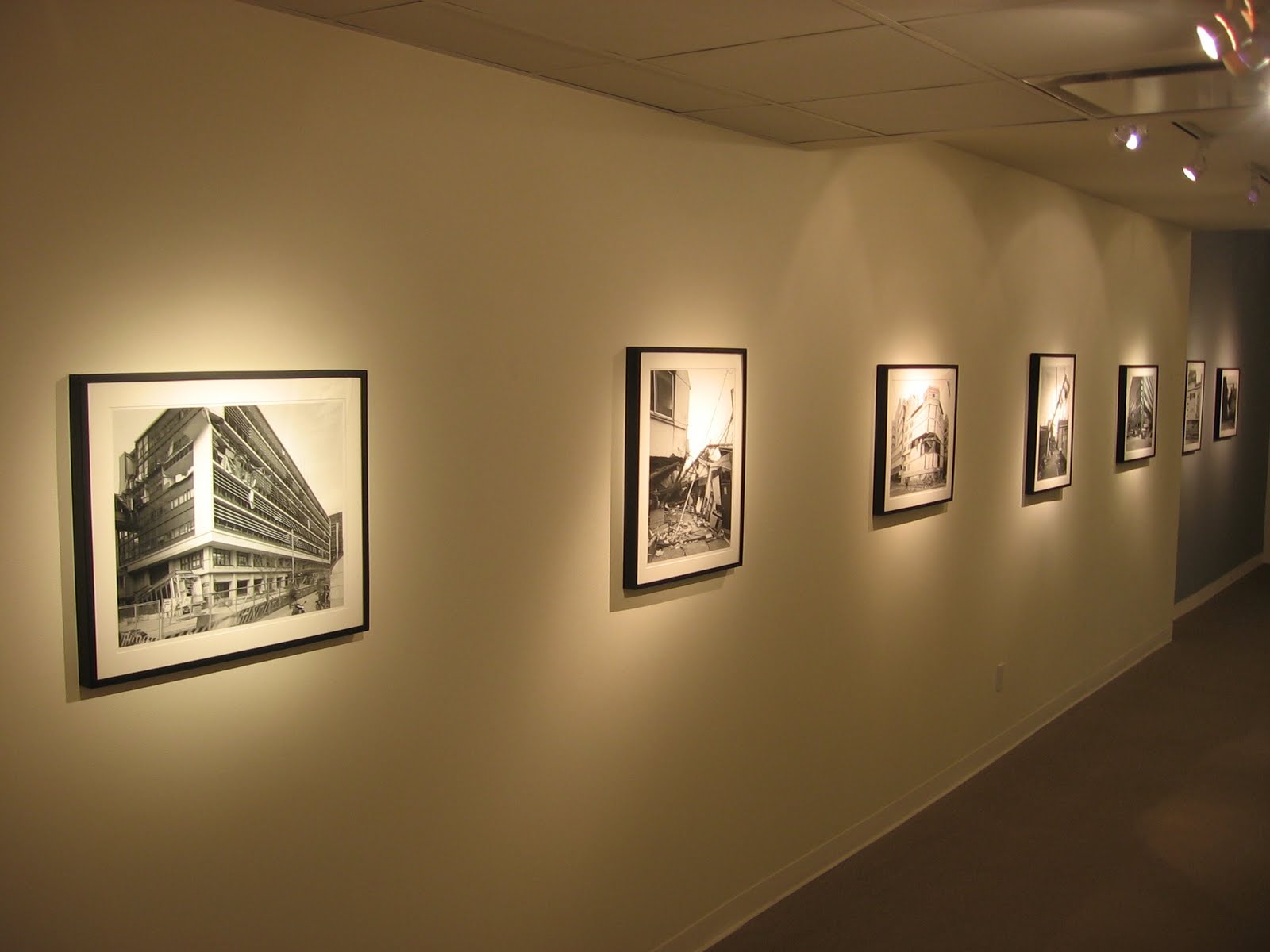 Collector’s POV: The gelatin silver prints in this show are reasonably priced at $3000 or $4000, based on their place in the edition. The photograms are either $6000 or $3500, based on size. A few of Miyamoto’s works have recently come into the secondary markets, but not enough to have any real pricing pattern. Many of his photo books have also become quite collectable. Miyamoto is also represented by Taro Nasu Gallery in Tokyo/Osaka (here), Kicken Berlin (here), and Michael Hoppen Contemporary (here) in London.
Collector’s POV: The gelatin silver prints in this show are reasonably priced at $3000 or $4000, based on their place in the edition. The photograms are either $6000 or $3500, based on size. A few of Miyamoto’s works have recently come into the secondary markets, but not enough to have any real pricing pattern. Many of his photo books have also become quite collectable. Miyamoto is also represented by Taro Nasu Gallery in Tokyo/Osaka (here), Kicken Berlin (here), and Michael Hoppen Contemporary (here) in London.
Rating: ** (two stars) VERY GOOD (rating system described here)
